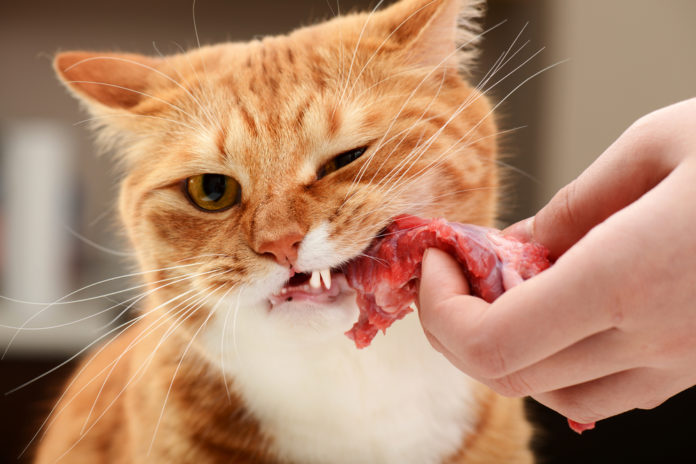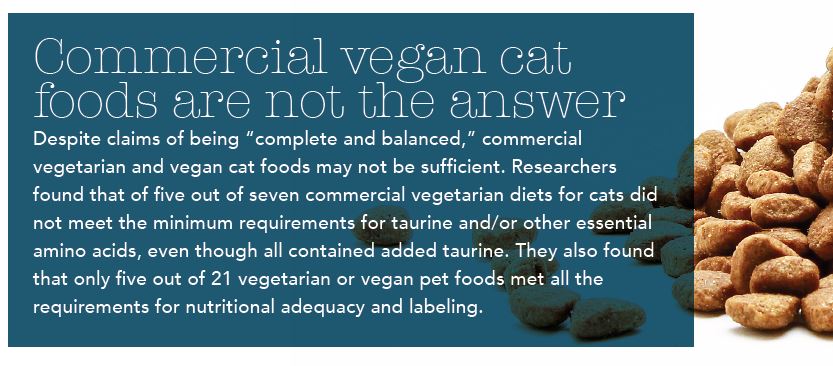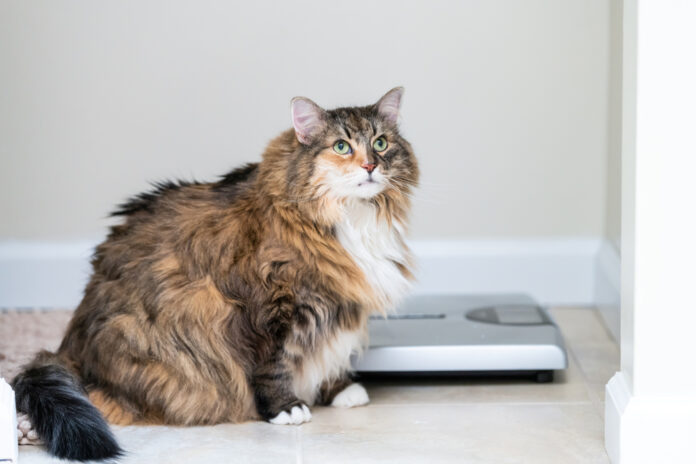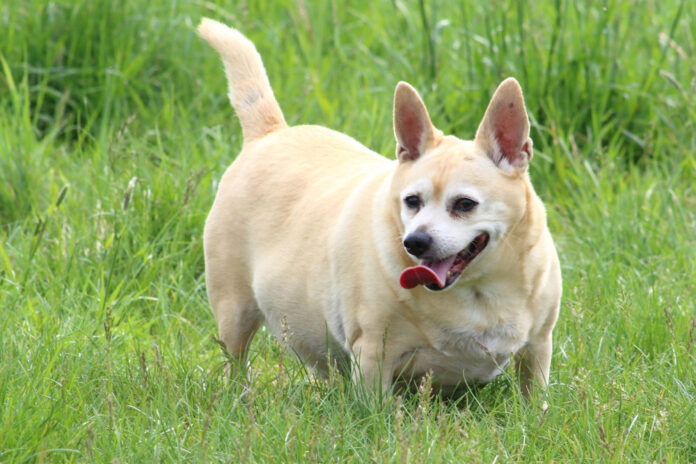Why cats have to eat meat

If you’re a vegan or vegetarian, and have wondered if your cat could be too – the answer is no. Cats must have meat in their diets in order to stay healthy. This article explains why.
Vegetarian and vegan diets are increasingly popular. People choosing these paths believe – justifiably — that they are healthier, more humane, and more sustainable. Those who opt for this lifestyle often want to apply the same principles to their cats; in fact, you can actually buy commercial vegetarian or vegan cat foods. However, these diets are not appropriate for felines (see sidebar below). Cats are “obligate carnivores” — the very word “carnivore” means “meat eater”. In other words, a cat’s complex nutritional needs simply cannot be met by a diet that’s devoid of animal products. In this article, we’ll explore why your cat has to eat meat in order to thrive.
Vegan and vegetarian diets are too high in carbs for cats
Plant-based diets are high in carbohydrates; often, more than 50% of their calories come from carbs. All carbohydrates (except fiber) ultimately break down into glucose; and refined processed carbs do this very quickly. This causes unnaturally large swings in a cat’s blood glucose, which in turn leads to insulin resistance, a precursor to diabetes.
Cats eating carb-heavy diets also tend to gain weight — another factor in diabetes. They digest carbohydrates perfectly well; but they can only use dietary glucose for their immediate energy needs (which are low). The remainder of the carbohydrates in the food are quickly and efficiently stored as fat.

Cats have higher protein requirements than other animals
While dogs, humans and other omnivores readily use carbohydrates, protein or fat for energy, the feline metabolism preferentially uses protein for energy as well as for structuring tissues and producing hormones and other vital molecules. That’s why a cat’s protein requirements are higher than those of other animals.
The feline metabolism preferentially uses protein for energy as well as for structuring tissues and producing hormones and other vital molecules
Proteins are made from amino acids, which means the feline requirement for specific amino acids is also higher. Humans need nine essential amino acids, and dogs need ten, including arginine. Cats need 11, including arginine and taurine. Several of these amino acids (taurine, arginine, tyrosine and carnitine) are found primarily in meat. Since the cat’s natural diet of raw prey animals contains these nutrients in abundance, access to these amino acids only becomes a problem when meat is absent. Essential nutrients like these must be consumed in the diet; the body can’t make them.
These amino acids must come from meat
1. Taurine
Taurine is essential for brain, nerve, eye and heart health. It is also a component of bile acids, which aid in the digestion of fat. Taurine has been in the news lately because dogs (who were thought to produce sufficient taurine on their own from other amino acids), have been developing dilated cardiomyopathy when fed certain commercial dog foods. However, while taurine deficiency is a likely suspect, there may be many other factors involved (see “Do grain-free diets really cause canine heart disease?”, Animal Wellness, Volume 21, Issue 5). Cats are also being affected, even though commercial cat foods (which often contain insufficient quality meat protein) are supplemented with taurine.
2. Arginine
Arginine is so important to cats that a single meal containing no arginine is fatal to kittens.
3. Tyrosine
Tyrosine is considered conditionally essential; it is used to produce the neurotransmitter dopamine and the stress hormone adrenaline. Interestingly, tyrosine deficiency will cause a black cat’s fur to lose melanin and turn reddish-brown.
4. Carnitine
Carnitine can be made in the cat’s body, but the ability to do so may be impaired in cases of obesity (which affects more than 50% of US cats), kidney disease, liver disorders, and any time the appetite is reduced.
Additional issues with vegetarian and vegan diets
- High-carb diets limit the cat’s ability to digest and absorb protein; even though there is enough protein on paper, the cat may be unable to use it.
- B vitamins, especially B1 (thiamine) and B12 are deficient for a cat’s requirements.
- Vitamin A,* found only in animal tissues, is also deficient. Other animals can make vitamin A from beta-carotene, but cats cannot.
- Vitamin D3,* found primarily in the liver, is deficient. The plant-based substitute, vitamin D2, is only 30% as potent, and has a much shorter duration of action.
- The fats linoleic acid (Omega-6) and alpha linolenic acid (Omega-3) are essential, and while both are found in vegetables, vegan cat foods tend to be low in fat, leading to dry skin and poor coat condition.
- Arachidonic acid, not found in vascular plants, is essential for the feline immune system.
- The Omega-3s EPA and DHA are essential for kittens, and highly beneficial to all cats. Currently, available vegan cat foods do not contain either.
- Commercial vegetarian and vegan cat foods use highly-processed, fractionated, chemically-extracted and synthesized ingredients to provide enough protein and other nutrients. Whole foods containing all the trace minerals, co-factors, and nutrient groups are far healthier than refined or synthetic versions.
- Cats consuming meat-based diets have a naturally-low acidic urinary pH of about 5 to 6. Vegetables cause urine pH to become alkaline, which may allow urinary crystals and stones to form. This can cause life-threatening urinary blockages in male cats. A survey of 300 vegetarian- or vegan-fed dogs also found a higher incidence of urinary tract, ear, and other infections.
From a veterinary viewpoint, the consequences of feeding a vegetarian or vegan diet to cats are reasonably expected to include obesity, diabetes, urinary tract disease, kidney disease, allergies, asthma, inflammatory bowel disease, liver disease, and skin and coat problems. However, veterinary nutrition is a young and inexact science; we are all still learning. Maybe one day these deficiencies will be resolved, but for now — please feed your cat a meat-based diet!
*Vitamins A and D are toxic if overdosed; simply adding extra to your cat’s food can be dangerous.




